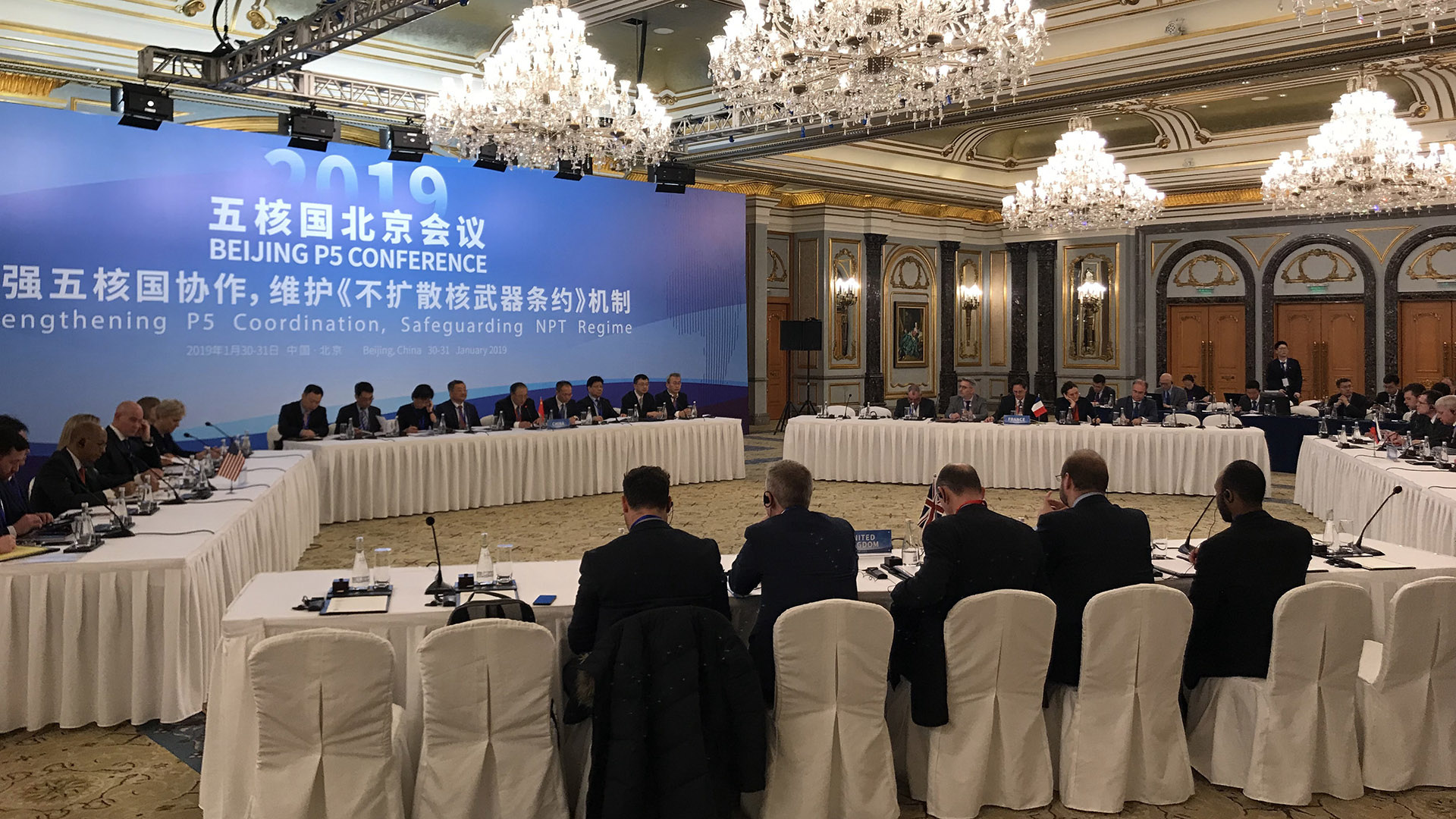
World
21:54, 30-Jan-2019
Five nuke powers vow to safeguard non-proliferation treaty
Updated
09:15, 31-Jan-2019
By Tang Bo and Bao Hongwei
03:15

Five nuclear powers – China, Russia, France, the UK and the U.S. – gathered in Beijing on Wednesday to discuss strengthening coordination and safeguarding the Treaty on the Non-Proliferation of Nuclear Weapons (NPT).
It's the second time Beijing has hosted the group, after a previous meeting here in 2014. Initiated by the UK in 2009, the conference provides a platform to reaffirm participants' commitments to their arms control and non-proliferation obligations.
Stressing that the NPT is the cornerstone of the global nuclear non-proliferation system, the five powers pledged to comprehensively implement the NPT, said Zhang Jun, head of the Chinese delegation and assistant minister of foreign affairs, when making conclusion remarks after the conference.
The P5 agreed to strive for greater progress in nuclear disarmament, do their utmost to resolve the nuclear non-proliferation issue through political and diplomatic measures, and enhance international cooperation in the peaceful use of nuclear energy, Zhang said.
He added that the nuclear powers will also strengthen exchanges on nuclear policies and strategies so as to prevent nuclear risks caused by misunderstandings and misjudgments.
"The P5 should consolidate coordination and cooperation to seek common security and maintain global strategic stability," Zhang said.
China will remain committed to building consensus and managing differences among the five nuclear powers in terms of strategic security, replacing the zero-sum game with win-win cooperation and contributing to world peace and stability, Zhang said.
The five permanent members of the UN Security Council are the legal nuclear weapon states recognized by the NPT.
Representatives from the nuclear powers touched upon issues covering nuclear strategy, arms control and non-proliferation, as well as communication with non-nuclear weapon countries.
In 2017, the UN adopted a landmark treaty to ban nuclear weapons, prohibiting a wide range of nuke-related activity. However, nuclear-armed countries and most of their allies stayed out of the treaty negotiations.
As a result, experts say efforts are needed to address divisions between nuclear-armed countries and unarmed ones so as to ensure that the international community is always on the same page when addressing future nuclear challenges.
Zhao Tong, researcher from the Carnegie-Tsinghua Center for Global Policy, said the nuclear weapon states are making progress towards nuclear disarmament, but the non-nuclear weapon states are not satisfied with the pace of the progress. They are therefore pushing for more radical measures towards disarmament, such as the treaty to prohibit nuclear weapons.
Many conference participants, however, see the Nuclear Weapon Ban Treaty challenging and counterproductive.
The Russian deputy foreign minister said the goal of setting up the new institution is noble, but the way to achieve it is wrong, and the five countries are united in the assessment.
The Russian delegation went on to stress that, whether a given country has nuclear weapons or doesn't, the essence of the NPT should be understood in the same way.
(Cover: Representatives from five nuclear powers touched upon issues covering nuclear strategy, arms control and non-proliferation, and communication with non-nuclear weapon countries, January 30, 2019. /CGTN Photo)

SITEMAP
Copyright © 2018 CGTN. Beijing ICP prepared NO.16065310-3
Copyright © 2018 CGTN. Beijing ICP prepared NO.16065310-3